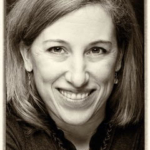Description:
In the twenty years since the 9/11 attacks, the expansive array of policies adopted in the name of waging a Global War on Terror have come with dire consequences for civil society actors and organizations. While the war on terror is very much still ongoing, with the end of the U.S. troop presence in Afghanistan and a shifting public consciousness around U.S. foreign policy, voices calling for a recalibration of U.S. policies are growing in numbers and strength.
On September 20, twenty years to the day after President Bush declared the Global War on Terror, four of those voices will join our host Paul Carrol, Director of the Charity & Security Network, to share their experiences regarding the impacts of post-9/11 policies on civil society, and to help shine a light on a better path forward.
Specifically, the discussion will address the impacts of counterterrorism sanctions, “material support” laws, and bank de-risking on civil society organizations.
About Our Panelists:
 Perry Cammack, Peacebuilding Program Director at the Rockefeller Brothers Fund
Perry Cammack, Peacebuilding Program Director at the Rockefeller Brothers Fund
Perry Cammack is the peacebuilding program director at the Rockefeller Brothers Fund. For nearly a decade, he worked as a foreign policy advisor to then-Senators Joseph Biden and John Kerry on the U.S. Senate Foreign Relations Committee. He has also worked on the policy planning staff at the U.S. State Department, at the Carnegie Endowment for International Peace, and as an adjunct professor at George Washington University.
 Kay Guinane, Senior Advisor at the Charity & Security Network
Kay Guinane, Senior Advisor at the Charity & Security Network
Kay Guinane is the founder and Senior Advisor at the Charity & Security Network. She is a public interest attorney who specializes in the rights of nonprofit organizations, particularly in the areas of freedom of speech and association and national security. She has published research, testified before Congress, and engaged extensively in advocacy and consulting on these issues in the U.S. and abroad.
 Patricia McIlreavy, President and CEO of the Center for Disaster Philanthropy
Patricia McIlreavy, President and CEO of the Center for Disaster Philanthropy
Patricia “Patty” McIlreavy (MAC-ill-ree-vee) is president and CEO of the Center for Disaster Philanthropy (CDP), an organization that works with funders, nongovernmental organizations (NGOs) and other partners to mobilize a full range of resources that strengthen the ability of communities to withstand disasters and equitably recover when they occur. With more than 25 years of experience in international humanitarian policy and practice, she brings a unique blend of operational and strategic expertise to disaster philanthropy.
 Lisa Schirch, Starmann Visiting Chair of Peace Studies at the University of Notre Dame’s Kroc Institute for International Peace Studies
Lisa Schirch, Starmann Visiting Chair of Peace Studies at the University of Notre Dame’s Kroc Institute for International Peace Studies
Dr. Lisa Schirch is Starmann Visiting Chair of Peace Studies at the University of Notre Dame’s Kroc Institute for International Peace Studies and Senior Research Fellow for the Toda Peace Institute, directing the Social Media, Technology, and Peacebuilding program. A former Fulbright Fellow in East and West Africa, Schirch is the author of eleven books focused on locally-led peacebuilding, including Conflict Assessment and Peacebuilding Planning, Local Ownership in Security, The Ecology of Violent Extremism, Synergizing Nonviolent Action & Peacebuilding, and Social Media Impacts on Conflict and Democracy. Dr. Schirch worked in Afghanistan from 2009-2014 and wrote “Designing a Comprehensive Peace Process in Afghanistan” published by the US Institute of Peace.
